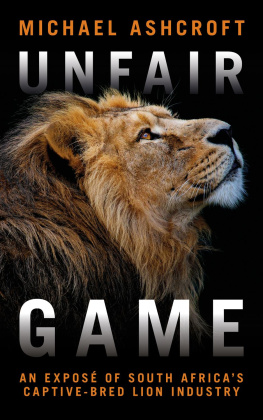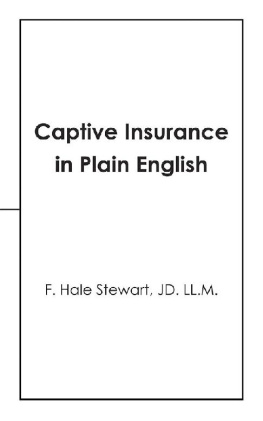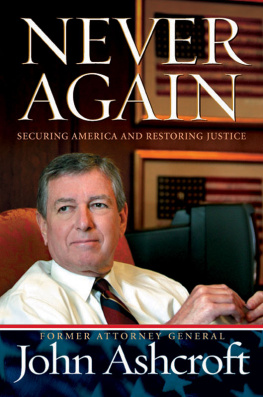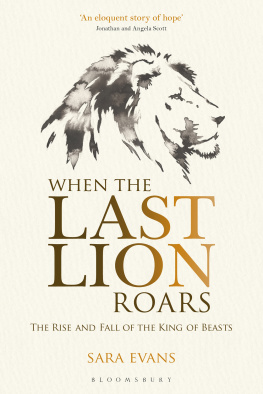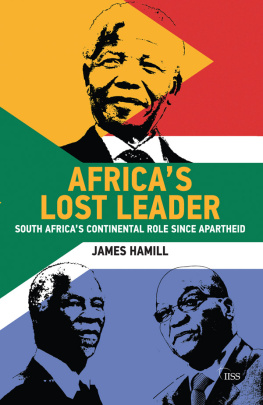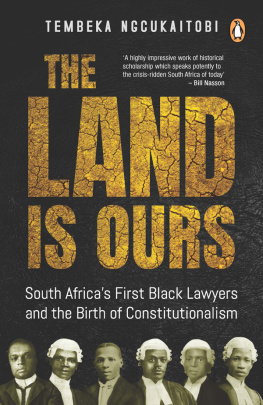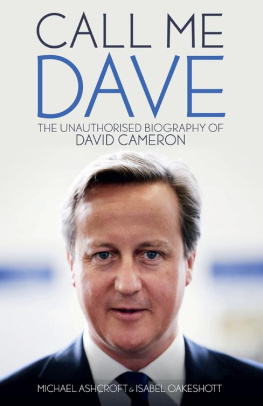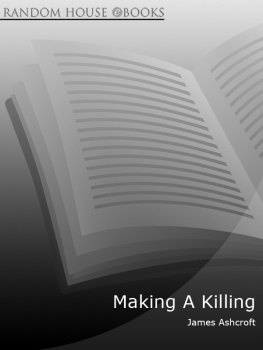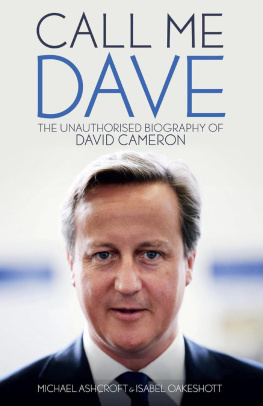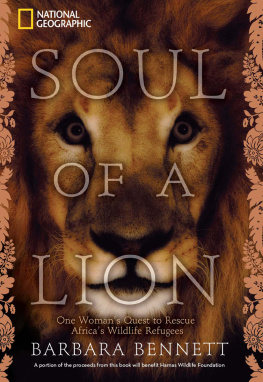Michael Ashcroft - Unfair Game: An investigation into South Africas captive-bred lion industry
Here you can read online Michael Ashcroft - Unfair Game: An investigation into South Africas captive-bred lion industry full text of the book (entire story) in english for free. Download pdf and epub, get meaning, cover and reviews about this ebook. year: 2020, publisher: Biteback Publishing, genre: Romance novel. Description of the work, (preface) as well as reviews are available. Best literature library LitArk.com created for fans of good reading and offers a wide selection of genres:
Romance novel
Science fiction
Adventure
Detective
Science
History
Home and family
Prose
Art
Politics
Computer
Non-fiction
Religion
Business
Children
Humor
Choose a favorite category and find really read worthwhile books. Enjoy immersion in the world of imagination, feel the emotions of the characters or learn something new for yourself, make an fascinating discovery.
- Book:Unfair Game: An investigation into South Africas captive-bred lion industry
- Author:
- Publisher:Biteback Publishing
- Genre:
- Year:2020
- Rating:3 / 5
- Favourites:Add to favourites
- Your mark:
- 60
- 1
- 2
- 3
- 4
- 5
Unfair Game: An investigation into South Africas captive-bred lion industry: summary, description and annotation
We offer to read an annotation, description, summary or preface (depends on what the author of the book "Unfair Game: An investigation into South Africas captive-bred lion industry" wrote himself). If you haven't found the necessary information about the book — write in the comments, we will try to find it.
Unfair Game: An investigation into South Africas captive-bred lion industry — read online for free the complete book (whole text) full work
Below is the text of the book, divided by pages. System saving the place of the last page read, allows you to conveniently read the book "Unfair Game: An investigation into South Africas captive-bred lion industry" online for free, without having to search again every time where you left off. Put a bookmark, and you can go to the page where you finished reading at any time.
Font size:
Interval:
Bookmark:
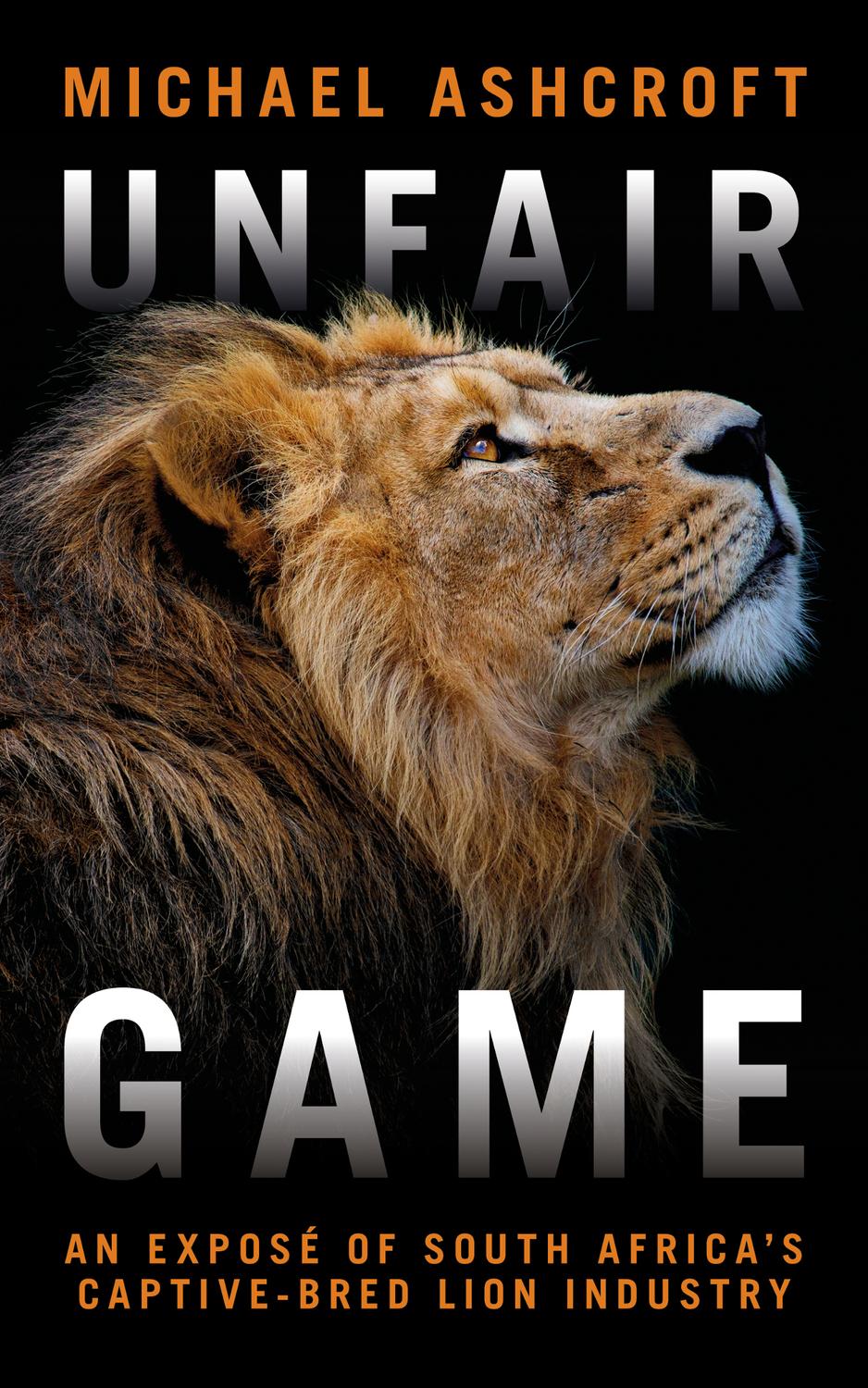
Until the lion tells the story, the tale of the hunt will always glorify the hunter.
african proverb
viM any people have assisted with this project, but it is a shocking indictment of South Africas lion industry that some of them must remain nameless for security reasons. The threats and intimidation that are rife in lion farming, canned hunting and the bone trade make it unwise to name every individual linked to this book.
Those who have been notably generous with their time are Dr Andrew Muir, Ian Michler, Dr Don Pinnock, Colin Bell, Linda Park, Amy P. Wilson, Eduardo Goncalves, Kevin Dutton, Stewart Dorrington, Stan Burger, Gareth Patterson, Beth Jennings, Nikki Sutherland, Richard Peirce, Iris Ho, Doug Wolhuter, Dr Peter Caldwell, Dr Pieter Kat, Adrian Gardiner, Christine Macsween and Karen Trendler. None of these individuals was aware of my undercover investigation and, despite their cooperation, some will not share my views as detailed in this book.
Thanks must also go to my corporate communications director, Angela Entwistle, and her team, as well as to those at Biteback Publishing who were involved in the production of this book. x
Special thanks to all the undercover operatives who carried out their assignments with courage and professionalism. The Born Free Foundation and South Africas National Council of Societies for the Prevention of Cruelty to Animals (NSPCA) were also immensely helpful.
And special thanks go to my chief researcher, Miles Goslett, for his outstanding editorial support.
BY SIR RANULPH FIENNES
A frica holds a special place in my heart. It is where I grew up and learned about the wonder of nature. It is also where the British Empire tragically unleashed the plague of persecuting animals purely for pleasure, which has wrought such devastating damage. Trophy hunters continue to travel to Africa to plunder what remains of the populations of some of the greatest animals ever to walk the planet. This includes lions.
Over the past thirty years, South Africa has become a magnet for people from all over the world who wish to kill a lion in a so-called canned hunt. Through this appalling pastime, the countrys captive-bred lion industry has been able to develop, furnishing these alleged hunters with their prey. Yet it is now clear that it is highly destructive in many different ways.
What is truly awful is that its wheels are oiled unwittingly by tourists, most of whom pay to spend time with captive-bred lions without realising their true plight. That it also now feeds the bone markets of Asia once the lions are dead is scandalous.
This is a problem for all of us. Humans everywhere share an extraordinary natural heritage. It is therefore the responsibility xii of everybody to care for it. Britain may have played a major role in the many crises faced by animals today. We can certainly play a leading role in coming up with some solutions. With this in mind, Lord Ashcrofts investigation of the captive-bred lion industry is timely and I welcome it wholeheartedly.
Sir David Attenborough once said that humans must step back and remember we have no greater right to be here than any other animal. Wildlife is not a resource that we can exploit with no regard for its well-being. We debase ourselves when we consciously ignore the pain and suffering we inflict and then give weasel-worded justifications for what is plainly wrong and immoral. We are the planets most powerful species. That places upon us a special responsibility to treat all living things with respect.
It is also our responsibility to hand over the baton to the next generation with South Africas captive-bred lion industry consigned firmly and permanently to the dustbin of history. I hope sincerely that this book will go a long way towards helping to do just that.
Lord Ashcroft is donating all royalties from Unfair Game to wildlife charities in South Africa. xiv
I n December 2018, I went to South Africa to report on Footprints of Hope, a unique project arranged by a British charity that aims to combat wildlife crime. Footprints of Hope allows veterans suffering from physical and mental health problems to spend time caring for orphaned baby rhinos. Dozens of these creatures, some only weeks or months old, are found abandoned in Africa every year. In almost all cases their mothers have been brutally shot and dehorned, sometimes while they are still alive, by poachers.
The programme was hosted by a second charity, Care for Wild, whose sanctuary just outside South Africas famous Kruger National Park has become a home for many rhinos. The aim of Footprints of Hope is for humans and animals, both damaged by traumatic events in their lives, to benefit from the others existence through animal-assisted therapy (AAT), which brings animals and humans together. AAT is used to complement and enhance the benefits of more conventional therapy. Through my sponsorship of Footprints of Hope, five UK Armed Forces veterans have so far benefited from this project.
While I was planning this trip, I decided I wanted to spend xvi some of my time in South Africa making enquiries about another imperilled creature: the lion. I was familiar with the ghastly phenomenon of so-called canned lion hunting, in which wealthy tourists pay tens of thousands of dollars to hunt a lion when in reality all they do is pursue a tame creature in an enclosed space and then shoot it. I was also aware that hundreds of lions die in this manner in South Africa each year. As I detest animal maltreatment, I wanted to find out more about this particular form of cruelty so that I might be able to help end it.
As I journeyed around the country, I spoke to many animal experts and conservationists and listened to what they had to say. What I heard shocked me. It soon became clear that, however abhorrent canned lion hunting undoubtedly is, it represents just one element of a far greater problem. It is no exaggeration to say that the abuse of lions in South Africa has become an industry. Thousands are bred on farms every year; they are torn away from their mothers when just days old, used as pawns in the tourist sector, and then either killed in a hunt or simply slaughtered for their bones and other body parts, which are very valuable in the Asian medicine market. In between, they are poorly fed, kept in cramped and unhygienic conditions, beaten if they do not perform for paying customers, and drugged.
This sinister system has sprouted up in plain sight in South Africa, inflicting misery on the king of the savannah on an unimaginable scale. My research suggests it is highly likely that there are now at least 12,000 captive-bred lions in the country, against a wild population of just 3,000. Yet, strikingly, just a small number of people a few hundred profit from this abusive set-up. Thanks to South Africas constitution and laws, they xvii seem to be able to operate as they wish. In a country so vast, it is easy to see how anybody with the means to do so can break into this ugly business. What many will not realise, though, is that the lion trade is inextricably linked with violent international criminal networks. It could hardly be more sinister.
The harrowing details that I picked up during that visit in 2018 forced me to see just how desperate the situation has become. As I have learned more about the grim life cycle faced by any captive lion in South Africa, I have become determined to do whatever I can to bring to an end the abysmal industry in which these animals are caught. Quite apart from the harm inflicted upon the creatures themselves, their rampant exploitation is a stain on a country that I love. Indeed, it is a stain on all of us.
Font size:
Interval:
Bookmark:
Similar books «Unfair Game: An investigation into South Africas captive-bred lion industry»
Look at similar books to Unfair Game: An investigation into South Africas captive-bred lion industry. We have selected literature similar in name and meaning in the hope of providing readers with more options to find new, interesting, not yet read works.
Discussion, reviews of the book Unfair Game: An investigation into South Africas captive-bred lion industry and just readers' own opinions. Leave your comments, write what you think about the work, its meaning or the main characters. Specify what exactly you liked and what you didn't like, and why you think so.

